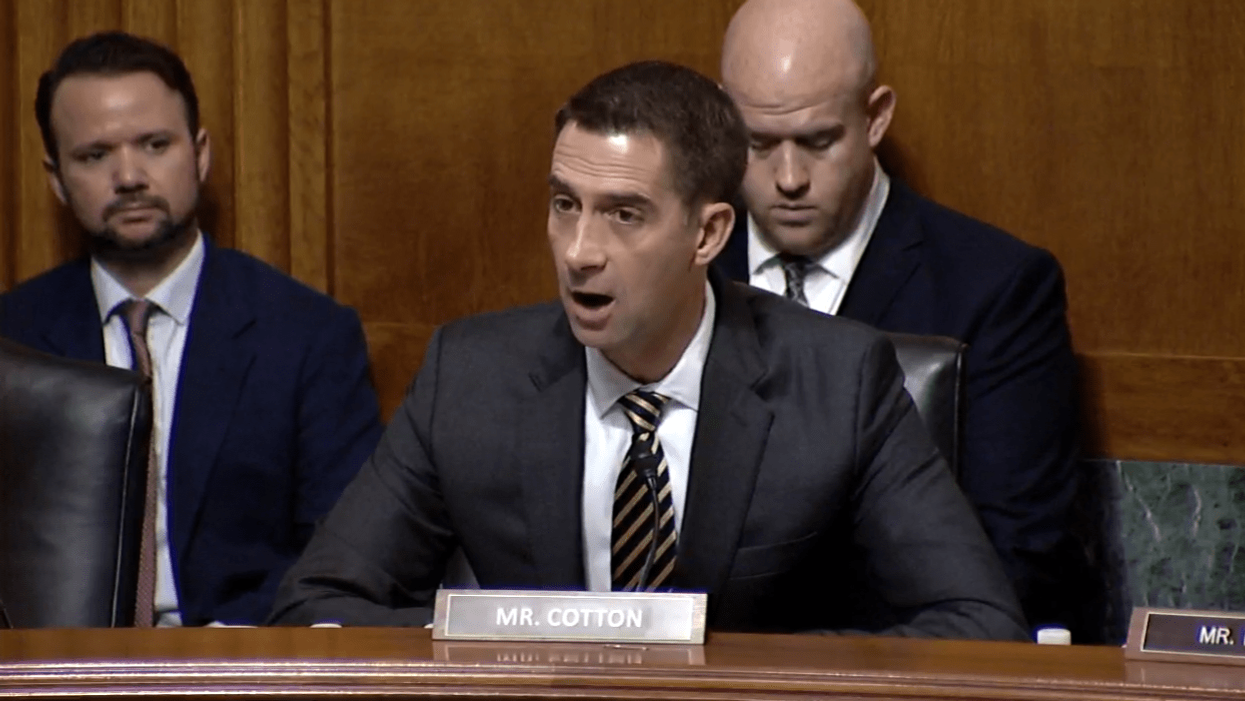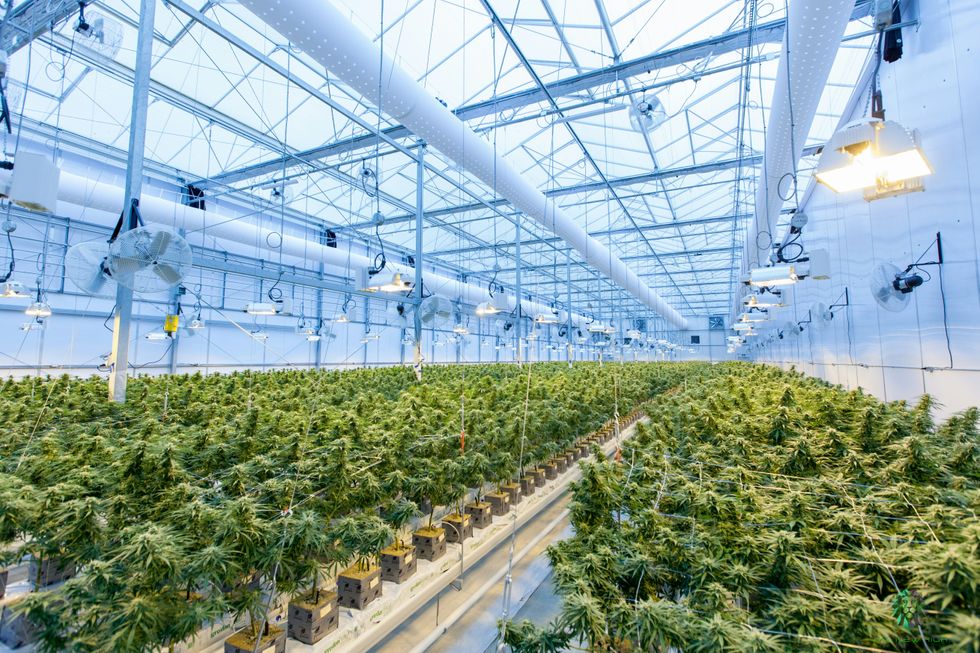July 27, 2022 -- On Tuesday, Sen. Corey Booker led a Judiciary subcommittee on decriminalizing cannabis at the federal level. It was a historical moment, the first time the Senate has ever held a meeting to discuss the end of cannabis prohibition.
The subcommittee, which included five witness testimonies, produced a lot of interesting dialogue and perspectives.
“We see now clearly that cannabis laws are unevenly enforced and, often, unfortunately devastate the lives of those most vulnerable,” Booker noted early on. “It’s clear that prohibition has not worked 50 years after the Controlled Substances Act was passed to stamp out the sale of cannabis.”
However, Sen. Tom Cotton went heavy and hard with the prohibition rhetoric in his opening remarks. “The marijuana legalization movement is plagued by misinformation,” he began.
That’s interesting because President Richard Nixon used misinformation and even buried 4,000 pages of research to get cannabis into Schedule I (a few years later Nixon was forced to resign from the White House as a criminal).
Cotton went on to note that if Booker’s Cannabis Administration and Opportunity Act was made into law, it would create more crime, not less. He said the proposed decriminalization of cannabis isn’t about medical programs, banking, or harm reduction.
To Cotton’s outdated thinking, it’s not a racial justice issue either. “Federal marijuana laws are not a racial justice issue and federal prisons are not filled with low level non-violent drug possessors,” Cotton said.
“Groups like the ACLU misleadingly suggests that Black Americans are disproportionately targeted by federal marijuana laws. But unlike the ACLU, the numbers don't lie. There are very few federal marijuana cases to begin with, barely over 1000 in 2021, and more than 80% of federal marijuana offenders are white or Latino.”
Where is Cotton getting his numbers? And what about state-level arrests, which federal decriminalization would deter? Either he’s lying (which a politician would never do) or his staff has been feeding him with bogus information. For starters, DEA cannabis busts actually increased in 2021.
Cotton, who must see himself as a cannabis expert, went on to demoralize the remarkable safety profile of cannabis and the need for more robust research policies in the U.S.
“The legalization movement is not about researching marijuana for potential medical purposes in the future. There is no shortage of marijuana research today. Much of that research is shedding light on the enormous negative health effects of marijuana on the human body,” he said.
“Health effects that include heart problems, brain damage, lung damage, impaired driving, mental health disorders, addiction and more. The danger for young Americans is especially acute. Recent studies linked use of marijuana by young people with a higher likelihood of committing violent crime and suicide.”
For a second, I though he was talking about alcohol, which does cause a lot of these issues, and where the CDC has reported a rise in alcohol-related deaths (and a decline in suicides, by the way, during a time where safe access to cannabis has flourished). And we still haven’t seen a single fatality caused by cannabis.
Furthermore, has Cotton actually read any of these anti-cannabis studies he mentions? Like in the 2021 study raising concerns on suicide, sex, and cannabis use trends, where U.S. National Institute on Drug Abuse Director Dr. Nora Volkow, the study's senior author, literally stated: "While we cannot establish that cannabis use caused the increased suicidality we observed in this study, these associations warrant further research.”
It's like that with any study you find on cannabis causing violent behavior or serious health problems: “No definitive claims here. Further research is needed.”
But of course Sen. Cotton – cannabis expert – goes on:
“That's not to say there aren't potential health benefits of marijuana-related chemicals in controlled settings. There are, for example, some drugs that use purified forms of chemicals found in marijuana, and are FDA approved and fully legal under federal law for treating things like seizures or cancer patients.”
Here, Cotton is no doubt talking about the CBD product Epidiolex, which costs patients $32,500 per year. He may also be referring to Marinol aka Dronabinol, which is a synthesized version of THC approved by the FDA in 1985 and seems to be hit or miss with patients.
None of these pharmaceutical products can replace the entourage effect of whole-plant cannabis, which Dr. Ethan Russo covered in a 2018 study (Russo also helped develop Epidiolex during his time with GW Pharma).
But let’s not interrupt Sen. Cotton. He’s the real cannabis expert:
“The Marijuana Reparations Act introduced last week by the Chairman and other Democrats like a similar bill by House Democrats, is not about research or medicine. It's about legalizing and commercializing marijuana nationwide, eliminating federal limits on recreational use and making marijuana much more easily available to young people, including teenagers,” Cotton said.
Huh. I guess Cotton didn’t see – or has conveniently overlooked – the National Survey on Drug Use and Health, which showed that teen cannabis use was actually on the decline in legal states, a trend which other studies (as well as Dr. Nora Volkow) have also confirmed.
Cotton went even further in his remarks, suggesting that expungement of cannabis records would unjustly put criminals back onto the streets. “The bill would wipe clean the criminal records of illegal alien traffickers, along with gang members by automatically expunging past marijuana trafficking convictions. It would even result in reduced sentences for repeat criminals who are serving time in federal prison for violent offenses or for trafficking other drugs like cocaine, heroin and fentanyl,” he said. “In short, this bill would be an enormous gift to the cartels and the gangs in the midst of a nationwide, violent crime surge.”
Right. This is plain-old fear mongering, which is how prohibition started in the first place. Non-violent and low-level cannabis expungement is a thing, but have we ever seen legislation proposing the release of violent prisoners or hard drug traffickers? Also, Sen. Cotton mentioned cocaine, which is a Schedule II Controlled Substance, by the way, so apparently it’s safer than cannabis.
“When these criminals trafficked marijuana, they broke the law. Whether some find that law unfashionable or even unfair, what they did was illegal. There should be consequences, not billions of dollars in grants to apologize for enforcing the law as it is written.”
Excuse me, Senator, it also used to be a law that Black Americans had to sit at the back of the bus. The U.S. also had a law that prevented women from voting. Just because it’s a law doesn’t make it right. But sorry, you’re obviously a man of reason, so go ahead.
“After all, why is marijuana illegal under federal law? It's simple. Because it has no accepted medical use. It's dangerous and it's addictive,” Cotton said.
There it is. Obviously, Cotton has zero regard for the fact that the War on Drugs has warped every system in the U.S., shattering the lives of countless families. Where’s the accountability? Or are we just aiming for re-election here?
“And that's not my judgment. Or even the DEA's judgment,” Cotton continues. “That's what the FDA found in 2016 during the administration of President Barack Obama.”
It’s also the FDAs judgement to allow shit like palm oil, added sugars, and yellow #5 on supermarket shelves. But according to idiots like Cotton, the FDA is infallible, so everything they say must be true.
The good people of Arkansas would do well to vote this dangerous clown out of office. The same goes for every other prohibitionist dinosaur stinking up the political scene.
Ending the federal prohibition of cannabis is not a single-issue vote. It’s an issue that touches nearly every facet of society, yet many so-called leaders refuse to get on the right side of history. Either they can’t accept new information, fear the perceived political ramifications, or they’re protecting vested interests (the latter of which is the real reason why cannabis prohibition started and remains).
As consciousness researcher Sebastian Marincolo once noted: “The legalization of marijuana is not a dangerous experiment – the prohibition is the experiment, and it has failed dramatically, with millions of victims all around the world.”
Need a little more Bluntness in your life? Subscribe for our newsletter to stay in the loop.














 High-THC Weed Explored - The Bluntness Photo by
High-THC Weed Explored - The Bluntness Photo by  High-THC Weed Explored - The Bluntness Photo by
High-THC Weed Explored - The Bluntness Photo by  High-THC Weed Explored - The Bluntness Photo by Maria Fernanda Pissioli on Unsplash
High-THC Weed Explored - The Bluntness Photo by Maria Fernanda Pissioli on Unsplash 
 Union Square Travel Agency: A Cannabis StoreWill Ellis
Union Square Travel Agency: A Cannabis StoreWill Ellis The Flower Lounge at Union Square Travel AgencyWill Ellis
The Flower Lounge at Union Square Travel AgencyWill Ellis Union Square Travel Agency's New Dispensary Opens on BroadwayWill Ellis
Union Square Travel Agency's New Dispensary Opens on BroadwayWill Ellis Union Square Travel Agency designed by Leong LeongWill Ellis
Union Square Travel Agency designed by Leong LeongWill Ellis Union Square Travel Agency: A Cannabis Store designed by Leong LeongWill Ellis
Union Square Travel Agency: A Cannabis Store designed by Leong LeongWill Ellis Union Square Travel Agency gives 51% of proceeds to The Doe FundWill Ellis
Union Square Travel Agency gives 51% of proceeds to The Doe FundWill Ellis When it comes to pricing, cultivation methods matter - The Bluntness
Photo by
When it comes to pricing, cultivation methods matter - The Bluntness
Photo by 
 The mix of in-state and out of state brands at a legal NY dispensary
The mix of in-state and out of state brands at a legal NY dispensary